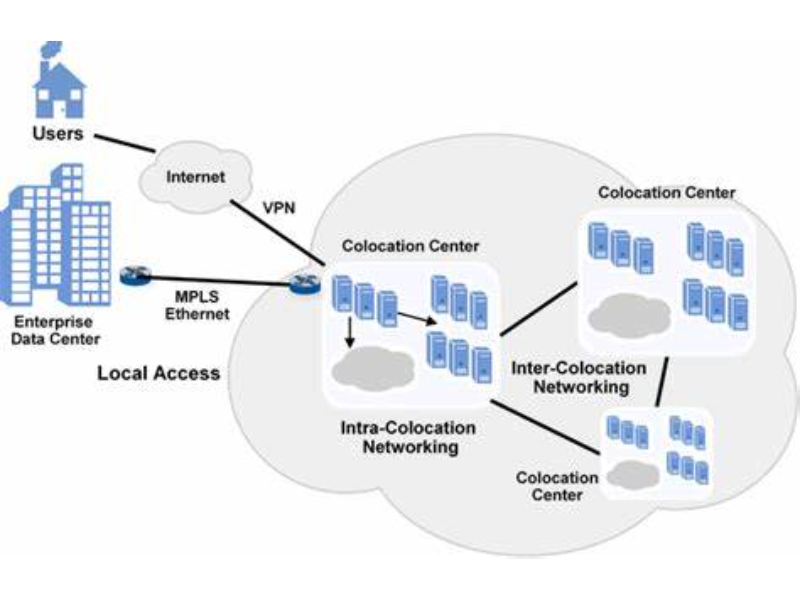- Colocation is a hosting service where a business rents space for its servers and other computing hardware in a data centre.
- With colocation, the customer retains ownership of the hardware but benefits from the data centre’s infrastructure, security, and connectivity.
Colocation services are an essential part of the modern digital infrastructure. They provide businesses and individuals with the ability to house their servers and other computing hardware in a professional, secure environment. This article aims to explain what colocation services are, how they work, and why they are important.
What is colocation
Colocation, often shortened to “colo”, is a hosting service where a business rents space for its servers and other computing hardware in a data centre. This is different from cloud hosting, where data is stored on servers owned and managed by a third party. With colocation, the customer retains ownership of the hardware but benefits from the data centre’s infrastructure, security, and connectivity.
Why choose colocation
Choosing colocation services offers several advantages:
- Improved reliability: Data centres are designed to provide continuous operation. They have redundant power supplies and cooling systems to ensure that servers run without interruption.
- Enhanced security: Data centres have robust security measures in place, including 24/7 surveillance, biometric access controls, and strict access policies.
- Cost-effectiveness: For businesses that do not have the resources to invest in their own data centre infrastructure, colocation can be a more cost-effective solution.
- Scalability: As a business grows, its data storage and processing needs may increase. Colocation services allow for easy scalability without the need for significant upfront investment in new hardware.
- Access to high-speed connectivity: Data centres typically have high-speed internet connections, providing faster data transfer rates than what might be available to a business operating independently.
Also read: Unlocking the potential of colocation data centres for internet users
How does colocation services work
- Choosing a provider: The first step is to choose a colocation provider that meets the business’s needs in terms of space, connectivity, and security.
- Hardware setup: The business installs its servers and other hardware in the data centre’s racks. Some providers offer assistance with this setup.
- Maintenance and management: The business is responsible for the maintenance and management of its hardware. However, the data centre provides support for the infrastructure.
- Paying for services: Colocation services are typically billed on a monthly basis, with costs varying based on the amount of space used, the level of connectivity required, and additional services chosen.
- Monitoring: Many data centres offer monitoring services, which can alert the business to any issues with its hardware or connectivity.

4 types of colocation services
- Single cabinet colocation: This is the most basic form of colocation, where a business rents space in a single cabinet.
- Private cages: For more security, businesses can rent a private cage within the data centre.
- Dedicated suites: For maximum control and security, businesses can rent a dedicated suite, which is a self-contained area within the data centre.
- Virtual colocation: This service allows businesses to rent virtual servers within a data centre’s infrastructure without the need for physical hardware.
Security in colocation
Data centres are designed with multiple layers of security to protect the hardware and data they house. This includes:
- Physical security: Data centres have strict access controls, including security guards, CCTV, and biometric systems.
- Fire suppression systems: To protect against fire, data centres have fire detection and suppression systems in place.
- Environmental controls: Data centres maintain optimal conditions for server operation, including temperature and humidity control.
Environmental considerations
Colocation services are increasingly focusing on sustainability. Many data centres invest in renewable energy sources and energy-efficient cooling systems to reduce their environmental impact. For instance, Equinix has pledged to achieve 100% renewable energy coverage globally by 2030 and has reached 96% coverage, demonstrating progress towards this goal 8.
Also read: Understanding colocation: Key features and benefits
Colocation services offer a robust, flexible, and secure solution for businesses seeking to manage their data and computing needs effectively. As the digital landscape continues to evolve, colocation is poised to play an increasingly important role in supporting businesses’ data management strategies, sustainability goals, and the need for high-performance connectivity.

